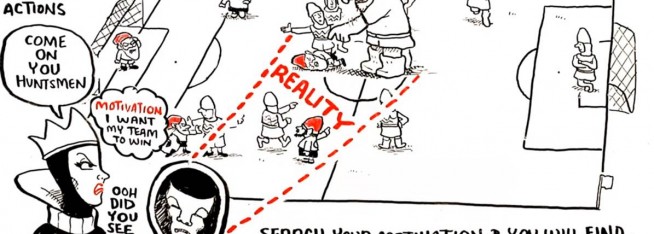Humans are torn by the conflict between the need to feel good about ourselves and the need to benefit from dishonesty. By rationalising our actions, we manage to do both on a daily basis.
Think of this scenario: most people would never steal even 10c from the petty cash tin at the office, however you would have no qualms about stealing a pencil from the stationery room. Even if you stole 10c from petty cash in order to go and buy a pencil, it would still feel like cheating. The net result is the same, but because the pencil we steal is psychologically removed from the concept of money, it’s easier to rationalise the action.
There are very few “big cheaters” in this world, but in fact most of us are “small cheaters”. The combined effect of these small cheats by the majority of us (who feel like we’re doing good) is much larger than the effects of those few big cheats.
So how can we use this coupling of action and rationalisation to get people to do the right thing?
Think about how you feel when watching a sports match… obviously you want your team to win, so your reactions are framed entirely by this motivation. Any decision that goes against your motivation (ie. against your team) is met with a negative reaction – “WHAT ARE YOU BLIND, REF??”. You can’t help but see reality through a biased viewpoint. The same thing applies in business, and this is what led to the sub-prime crisis: a banker who receives a commission based on the number of home loans he or she approves will be motivated to approve loans blindly. They rationalise their actions and feel like they’ve actually done good, even when he or she knows it will lead to someone defaulting and losing their home.
Human nature means we allow our motivations influence how we see reality. If we can reframe people’s motivations around doing the right thing, around delivering value in what they do, they will naturally be incentivised to stop cheating and actually do good.














View the full lecture and video here:
http://www.youtube.com/watch?v=XBmJay_qdNc